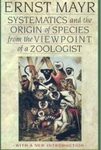“[Allen’s] lucid, careful examination of how we think about food (as well as how our brains receive input about food, whether we’re actively cogitating about it or not) is a welcome addition to the growing bookshelf exploring the brain, about which we know more and more but never, somehow, enough.”
- Kate Tuttle, The Boston Globe
“In The Omnivorous Mind, neuroscientist John Allen takes the long view of our eating habits, tracing their development through the evolution of our species. He expands on the increasingly widespread view that ‘the obesity epidemic that is occurring in developed countries throughout the world is ultimately a result of placing bodies and minds evolved for one environment in one that is wholly different.’ The emphasis here is on ‘minds,’ as Allen convincingly argues that our capacious brains have been profoundly shaped by the need to ensure a steady food supply. The reward pathways in our grey matter therefore compel us towards the sugariness that denotes ripe fruit or the fattiness of high-energy meat. But this system honed to extract the most calories from an unforgiving environment leads us badly astray when it is placed in a land of plenty. There is, however, hope. Our eating habits are rooted in our physiology but they are, nonetheless, also mediated by the culture in which we grow up. This is evident, for example, in the case of taboos, in which different cultures frown upon the consumption of some perfectly good foodstuffs, such as pork (as in Judaism or Islam), beef (in India) or insects (most of the western world). Allen astutely compares this to learning a mother tongue: we are all born hard-wired to acquire language, but which language we learn depends on our culture. Similarly, we are all born ready to acquire ideas of what counts as food and how to get it, but which food ideas we acquire depends on our upbringing. Applying this to the obesity problem, Allen argues we can shift our food culture towards a lower-calorie model, emphasizing more sophisticated pleasures than the salt/sugar/fat hit provided by a culture of pizza and ice-cream. This is like switching to a second language: it is not a simple decision but involves a great deal of effort and mental readjustment. Indeed, he claims, many diets fail because they underestimate just what a radical step it is for us to change these imprinted eating patterns.”
- Stephen Cave, The Financial Times
“[Has] a refreshing emphasis on the physiological and evolutionary aspects of our relationship with food. Recommended for readers seeking a better understanding of their complex relationship with food and its biological and cultural significance.”
- Jon Bodnar, Library Journal
“Whether we’re obsessing over intricate recipes or daydreaming about chocolate, our minds are often focused on food… Allen uses this mental gustation as a lens on our biological and cultural past, through anthropology, food history and the experience of chefs. The result is a banquet. Ranging over food cravings and aversions, cultural preferences and diets, he serves up plenty of amuse-bouches, not least an unusual take on the global love for the crispy and crunchy.”
- Nature
“An authoritative…guide to the ways in which humans eat with their minds as much as their stomachs. This includes the relationship between food and memory, language and diets, and the importance of categorizing foodstuffs…Anyone curious about the human condition will welcome the diversity.”
- Catherine de Lange, New Scientist
“John S. Allen’s The Omnivorous Mind is a clever and original take on how we think about food. Allen is a research scientist, which means that he’s less interested in the cultural history of food – how the pickle migrated from Eastern Europe to New York, for example – than he is in hard appetite. Allen’s approach involves the intriguing, if inconclusive, results that come from peering at brain scans and noticing which bits light up when we’re asked to think about different foods. Some of his best conclusions involve mapping current food preferences onto the long march of evolutionary biology.”
- Kathryn Hughes, Prospect
“There’s lots of terrific information about why we like crispy foods and how food drove evolution… [A] substantial tour of human history by way of the dinner plate.”
- Jesse Rhodes, Smithsonian blog Food & Think
“In The Omnivorous Mind [Allen] explores our biological equipment for taste and the ways in which each culture builds a unique cuisine upon a shared cognitive blueprint… Allen admirably conveys that our varied taste is both what makes us human and what marks each of us as an individual.”
- Leo Coleman, The Wall Street Journal
“John Allen combines evolution and modern biology to produce a feast of fresh ideas about our eating habits. The Omnivorous Mind is a fascinating reflection on the deep meanings of food.”
- Richard Wrangham, author of Catching Fire: How Cooking Made Us Human
Call us (08:30-17:00 UK)
01803 865913International
+44 1803 865913Need Help?
Help pagesWildlife Survey & Monitoring
Field Guides & Natural History
Academic & Professional Books
- Evolutionary Biology
- Evolution
- Human Evolution & Anthropology
- Cladistics, Phylogeny & Taxonomy
- View All
British Wildlife
British Wildlife is the leading natural history magazine in the UK, providing essential reading for both enthusiast and professional naturalists and wildlife conservationists. Published eight times a year, British Wildlife bridges the gap between popular writing and scientific literature through a combination of long-form articles, regular columns and reports, book reviews and letters.
Conservation Land Management
Conservation Land Management (CLM) is a quarterly magazine that is widely regarded as essential reading for all who are involved in land management for nature conservation, across the British Isles. CLM includes long-form articles, events listings, publication reviews, new product information and updates, reports of conferences and letters.



































